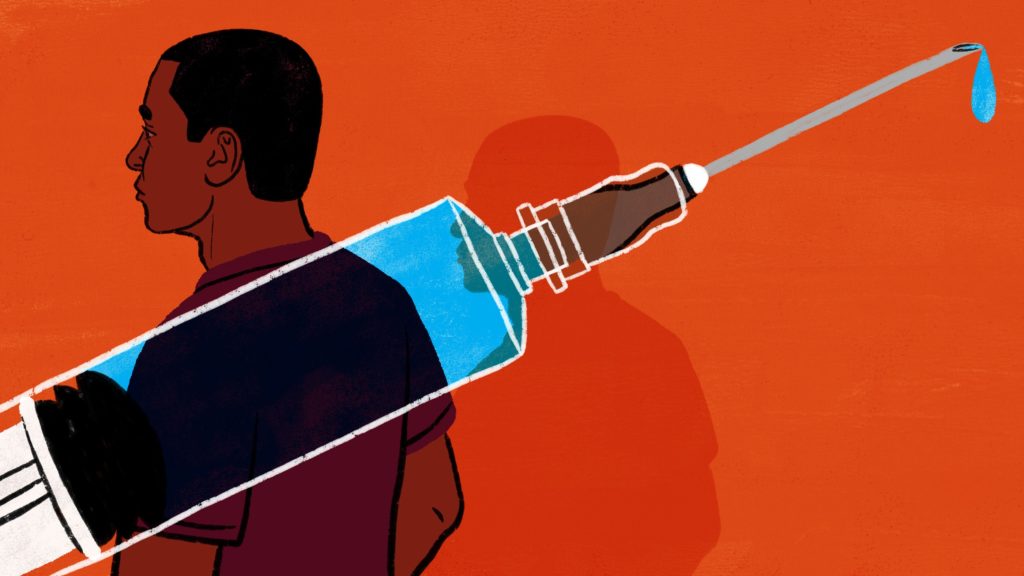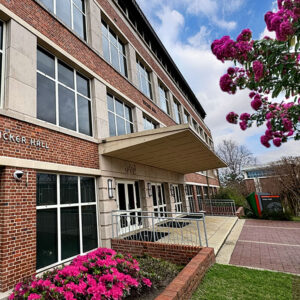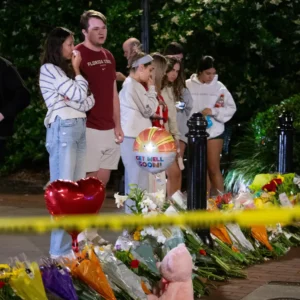COVID-19 | March 31st, 2021
Students of Color Weigh in on Their Covid-19 Vaccine
By: Erika Pierre

America wretchedly welcomes the anniversary of COVID-19 coming and turning our everyday lives upside down. The global pandemic is far from over and the only resolution seems to be the COVID-19 vaccine. Active coronavirus cases in the United States have reached about 30 million with 500,000 confirmed deaths. According to the National Urban League, Black Americans are three times as likely to contract COVID-19 compared to white Americans. College students are low on the priority list when it comes to receiving COVID-19 vaccination and with history reflecting depraved treatment of Black people in medical care, Black college students are uncertain of receiving the vaccine.
According to a new poll by the Kaiser Family Foundation and The Undefeated, only 6 to 10 Black people, compared to 8 to 10 white people, stated that they trust doctors to do what is right most of the time. Seven out of 10 Black Americans say that the health care system treats people unfairly centered on race frequently.
The stigma primarily began when Black men were victims of the Tuskegee experiment. In this experiment, Public Health Service worked with the Tuskegee Institute to conduct a study of untreated syphilis among Black men, who were injected with the virus and were not told what they were receiving. This ignited the fear and the distrust of healthcare providers in the Black community.
Despite the history of racism and ethically unjustified cases in health care that did not seem to stop some students from receiving the vaccine. Reanayla McCreary, a third-year elementary education major, believes it’s important for other Black students to receive the vaccination.
“I understand that historically and culturally that Black Americans as a whole are concerned when it comes to health care but there’s also an issue in the culture of letting things get to a point where they are in danger and their health is at risk,” McCreary says.
Reanayla works in a medical facility, so it wasn’t only important for her safety but those around her well. The 26-year-old recommends that other students receive the vaccination.
“I do recommend that if you do not understand how the vaccination works to look into it and understand the real science behind it,” McCreary says.
Fear did not hinder Madeline Clausell, a fourth-year psychology major, from receiving her vaccination.
“It never occurred to me to be afraid. My sense of responsibility to my loved ones often outweighs any inclination to fear,” Clausell says.
The 29- year-old works in public transportation and several of her coworkers and family members are at high risk. Madeline played her role in society by taking the vaccine because they are uncomfortable taking it themselves.
“I wanted to do my part to help them feel safe,” she says.
Though Madeline is content with her decision to receive the vaccine she does not recommend students to obtain it for themselves. She does, however, share with others that it will soon be inevitable and that it will be a possible requirement as universities gear up to welcome students back on campus grounds.
Cierra Nelson, a third-year environmental studies major, was nervous before receiving her vaccination especially since she made her decision on a whim. She initially went to the pharmacy to pick up medication and ended up leaving with her first vaccination shot. Nelson believes she made the right decision when it came to receiving the vaccination. The safety of her family is a high priority, and she encourages other people to receive it as well.
“This compromise should be something you are comfortable taking on. If not for your safety then for theirs,” she says.
Despite their odds of experiencing racial disparities in health care, some students were motivated to receive the vaccine for the safety of others without hesitation. There is no way of erasing the history of racism in inoculation but for them, receiving the COVID-19 vaccine may protect the lives around them.






